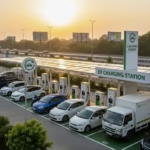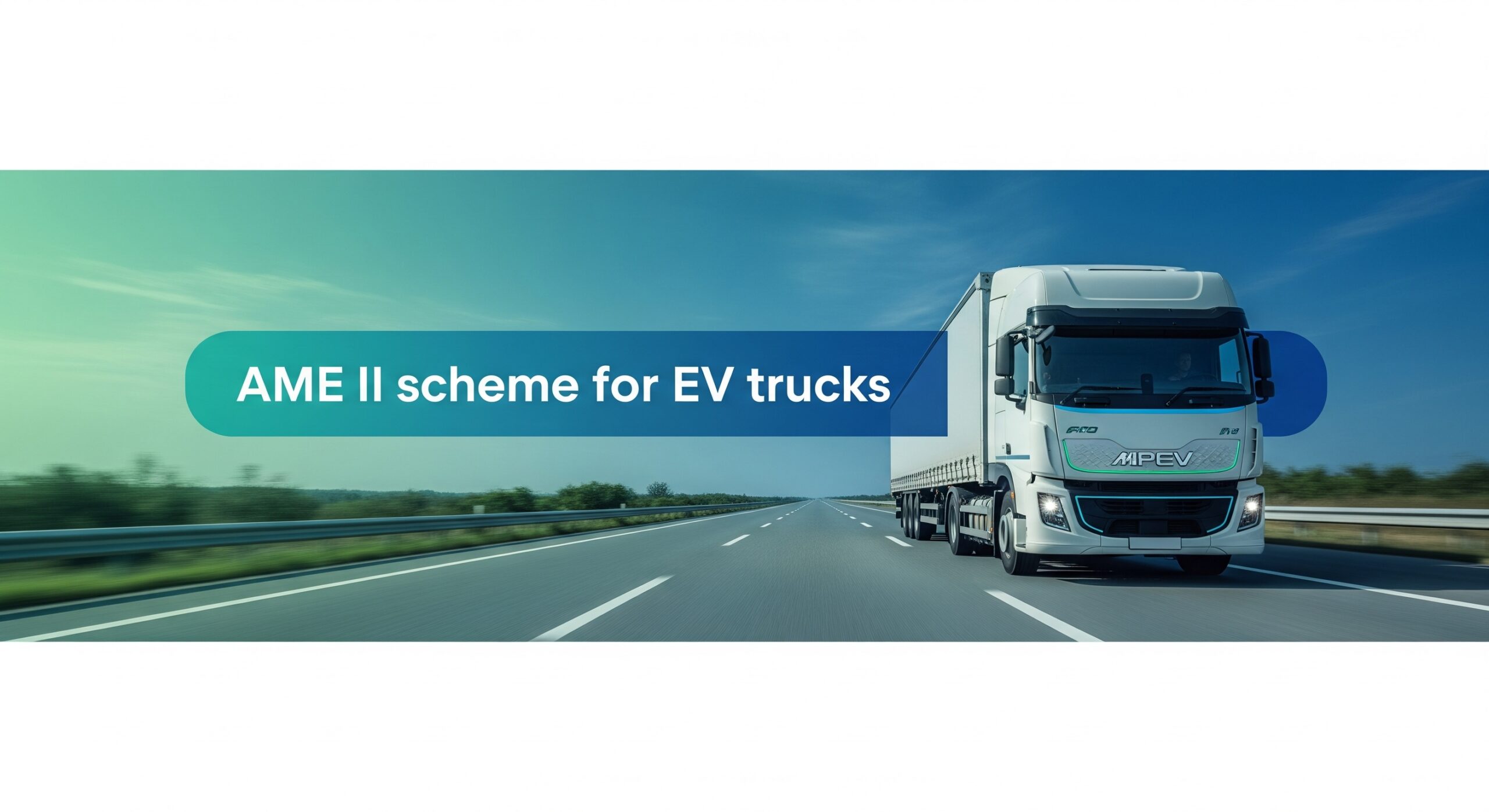India’s electric vehicle adoption is growing at record speed. With more EVs on the road, the demand for charging stations is rising across highways, residential complexes, malls, offices, and fuel stations.
But the big question is: How much does it cost to install an EV charging station in India in 2025? Let’s break it down.
🔹 EV Charging Station Installation Cost in India
The cost depends on charger type, capacity, location, and business model.
| Charger Type | Capacity | Installation Cost (Approx.) | Suitable For |
|---|---|---|---|
| Slow AC Charger | 3.3 kW – 7.4 kW | ₹50,000 – ₹1.25 lakh | Homes, apartments, small offices |
| AC Fast Charger | 11 kW – 22 kW | ₹1.5 – ₹3 lakh | Apartments, commercial complexes |
| DC Fast Charger | 30 kW – 60 kW | ₹7 – ₹15 lakh | Fleet operators, city charging hubs |
| High Power DC Charger | 100 kW – 350 kW | ₹20 lakh – ₹40 lakh | Highways, long-haul EV trucks, premium hubs |
👉 On average, a public EV charging station with 2–3 fast chargers costs ₹15–₹25 lakh in India.
🔹 Factors Affecting Cost
-
Land cost/lease – Owned land reduces expenses, while rented roadside spaces add monthly costs.
-
Electrical load upgrade – Transformer, cabling, and substation work may add ₹2–₹5 lakh.
-
Civil work & setup – Can cost ₹50,000 – ₹2 lakh depending on site.
-
Networking software – Smart charging apps, billing integration: ₹1–₹2 lakh.
-
Government approval & licensing – Registration is free, but compliance paperwork may involve admin costs.
🔹 Government Subsidy & Incentives (2025)
-
FAME-II subsidy ended in March 2024, but some state governments (Delhi, Maharashtra, Karnataka, Telangana, Tamil Nadu) provide:
-
Capital subsidy up to 25% of charger cost
-
Electricity duty waivers
-
Low commercial tariff for EV charging
-
-
GST benefit: Only 5% GST on EV chargers (vs 18% earlier).
👉 Example: A 60 kW DC fast charger costing ₹12 lakh may get ₹2–3 lakh subsidy in certain states.
🔹 ROI & Profitability
Revenue sources:
-
Per-unit charging fee (₹12–₹20/kWh in most cities)
-
Parking charges (if applicable)
-
Partnerships with fleets, taxi operators, e-commerce delivery firms
ROI timeline:
-
Small AC chargers (₹1–3 lakh setup): Payback in 1.5–2 years
-
DC fast charging hubs (₹15–25 lakh setup): Payback in 3–5 years
⚡ With rising EV adoption, utilization rates are expected to double by 2027, making charging stations more profitable.
🔹 Documents Required for Installation
-
Proof of land ownership/lease agreement
-
Company registration (if commercial setup)
-
GST certificate & PAN
-
Electricity connection approval from DISCOM
-
Local municipal NOC (if required)
🔹 Who Can Install an EV Charging Station?
✅ Entrepreneurs with land near highways, malls, petrol pumps, or bus stands
✅ Fleet operators & taxi aggregators (Ola, Uber, logistics firms)
✅ Real estate developers (apartments, office parks, IT hubs)
✅ Petrol pump owners looking to add EV charging facility
✅ Government-approved franchise partners (e.g., Jio-bp, Tata Power, Statiq)
🔹 Benefits of Setting Up an EV Charging Station
-
High demand growth: EV sales in India are growing at 40–50% YoY
-
Green business: Supports India’s net-zero 2070 mission
-
Recurring revenue: Low maintenance, long-term steady income
-
Franchise options: Tie up with established brands for faster ROI
-
Tax & subsidy advantages: Reduced GST + state-level incentives
🔹 Frequently Asked Questions (FAQs)
Q1. What is the minimum cost to install an EV charging station in India?
👉 A basic AC charger can be installed for ₹50,000–₹1 lakh at home.
Q2. How much does a public charging station cost?
👉 ₹15–25 lakh for 2–3 fast chargers + setup.
Q3. Do I need a license?
👉 No special license is needed as per Govt. of India guidelines, but local DISCOM approval is mandatory.
Q4. Is it profitable?
👉 Yes, ROI is 3–5 years depending on traffic and location.
Q5. Can petrol pump owners install chargers?
👉 Yes, many oil companies (IOCL, HPCL, BPCL) are already partnering with private EV charging companies.
Final Thoughts
The EV charging station installation cost in India can range from ₹1 lakh for small setups to ₹40 lakh for highway hubs. While the initial investment may look high, the long-term ROI, rising EV adoption, and government support make it a future-ready business opportunity.
For entrepreneurs, fleet operators, and real estate developers, 2025–2030 is the golden period to enter the EV charging infrastructure business in India.






